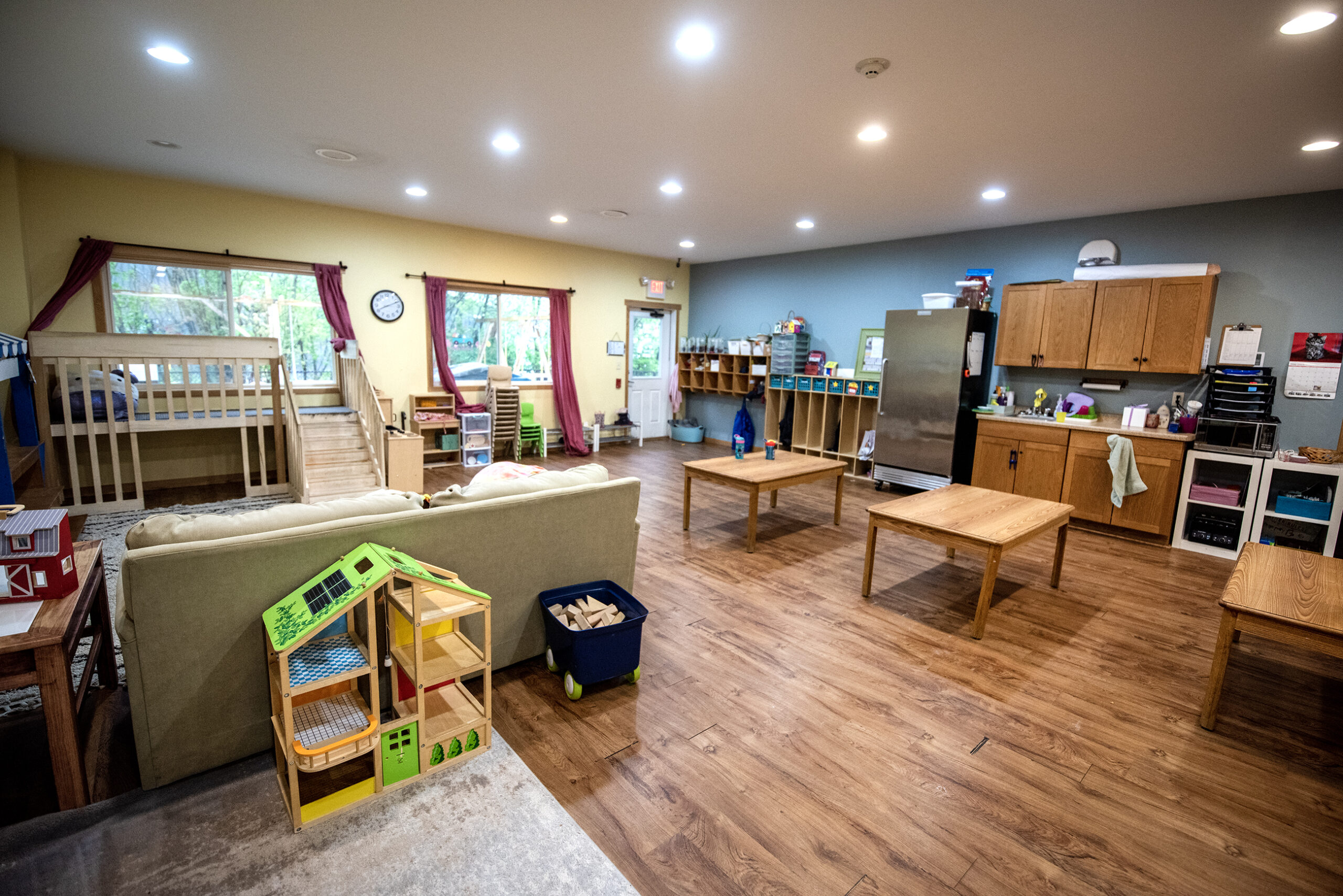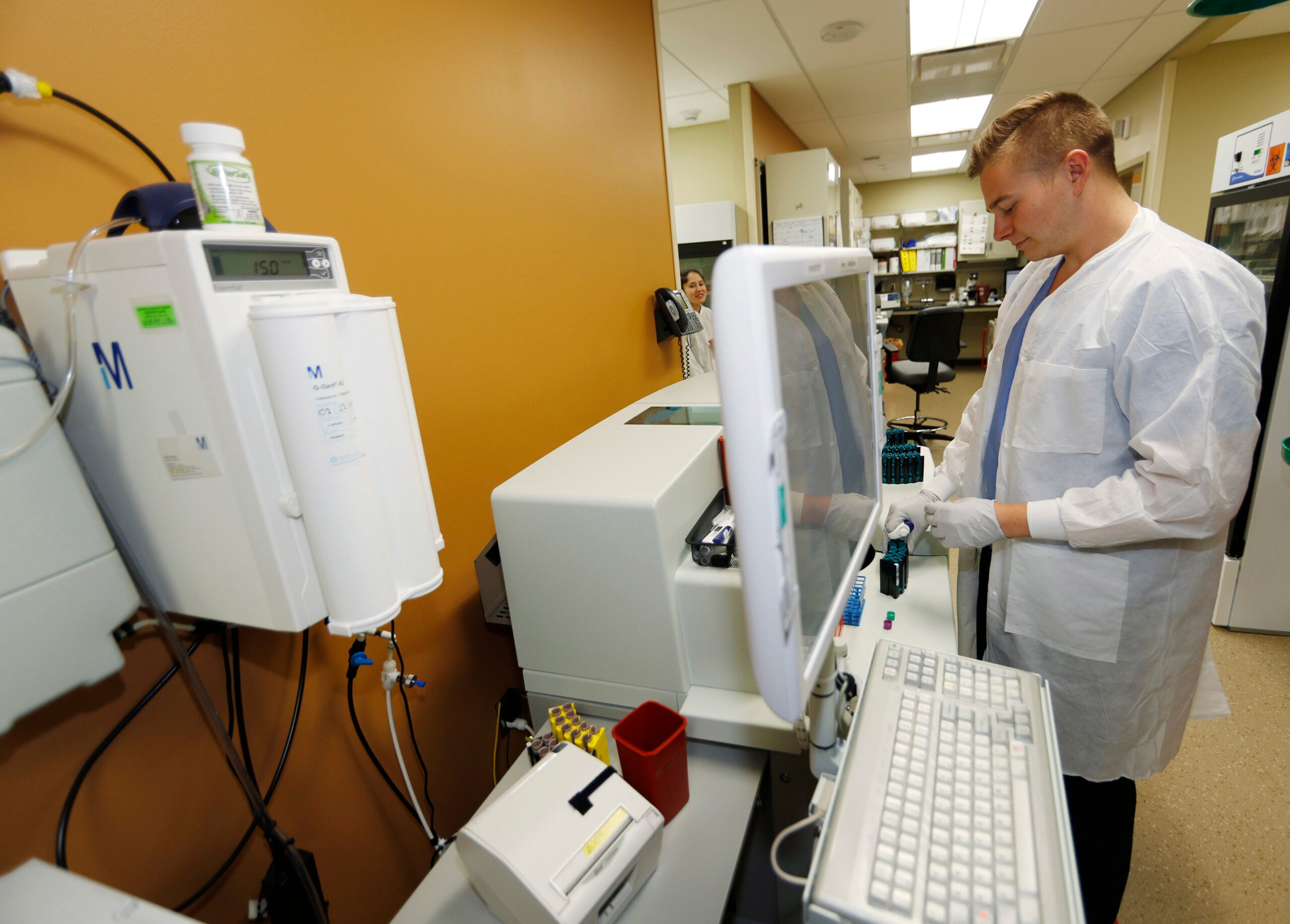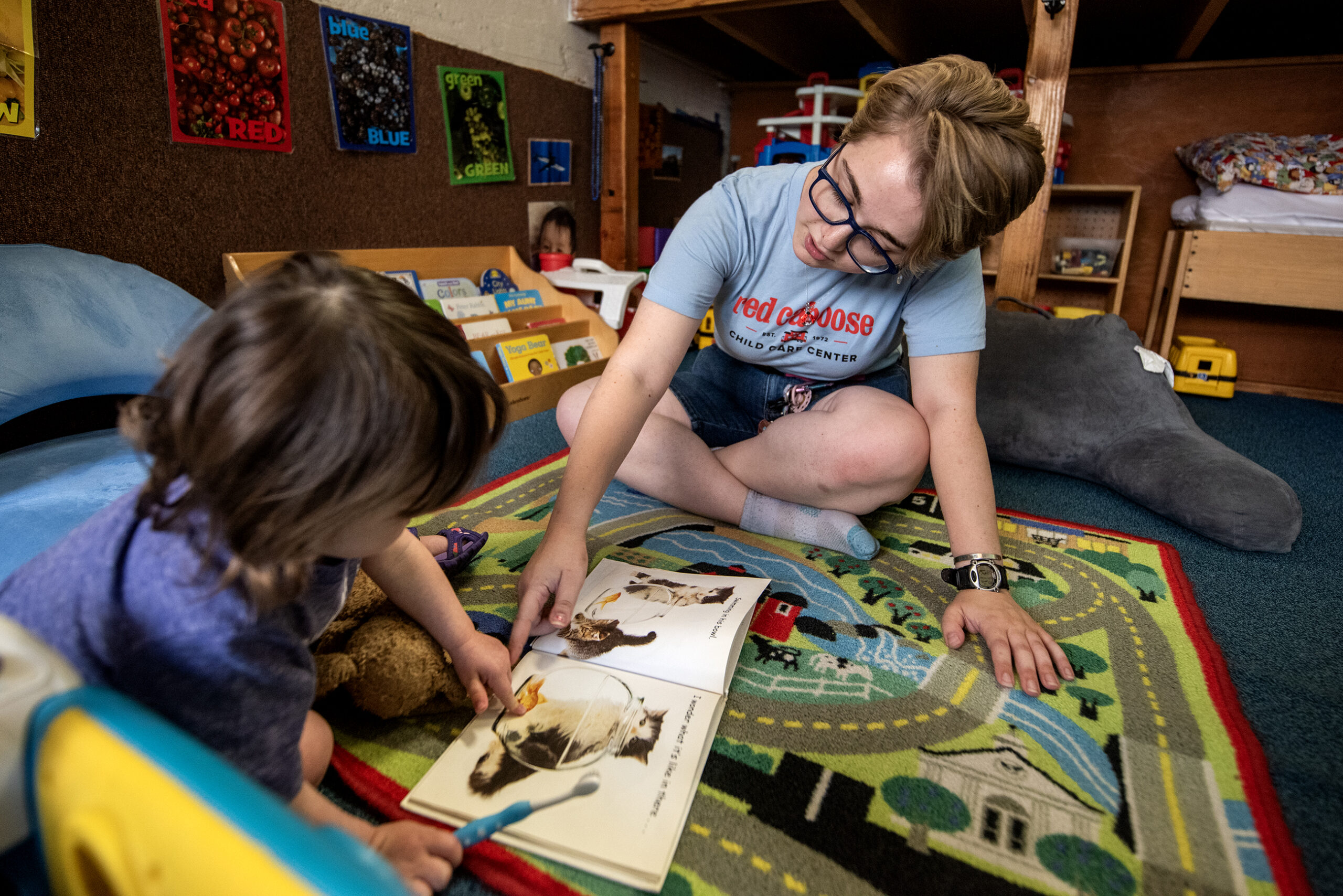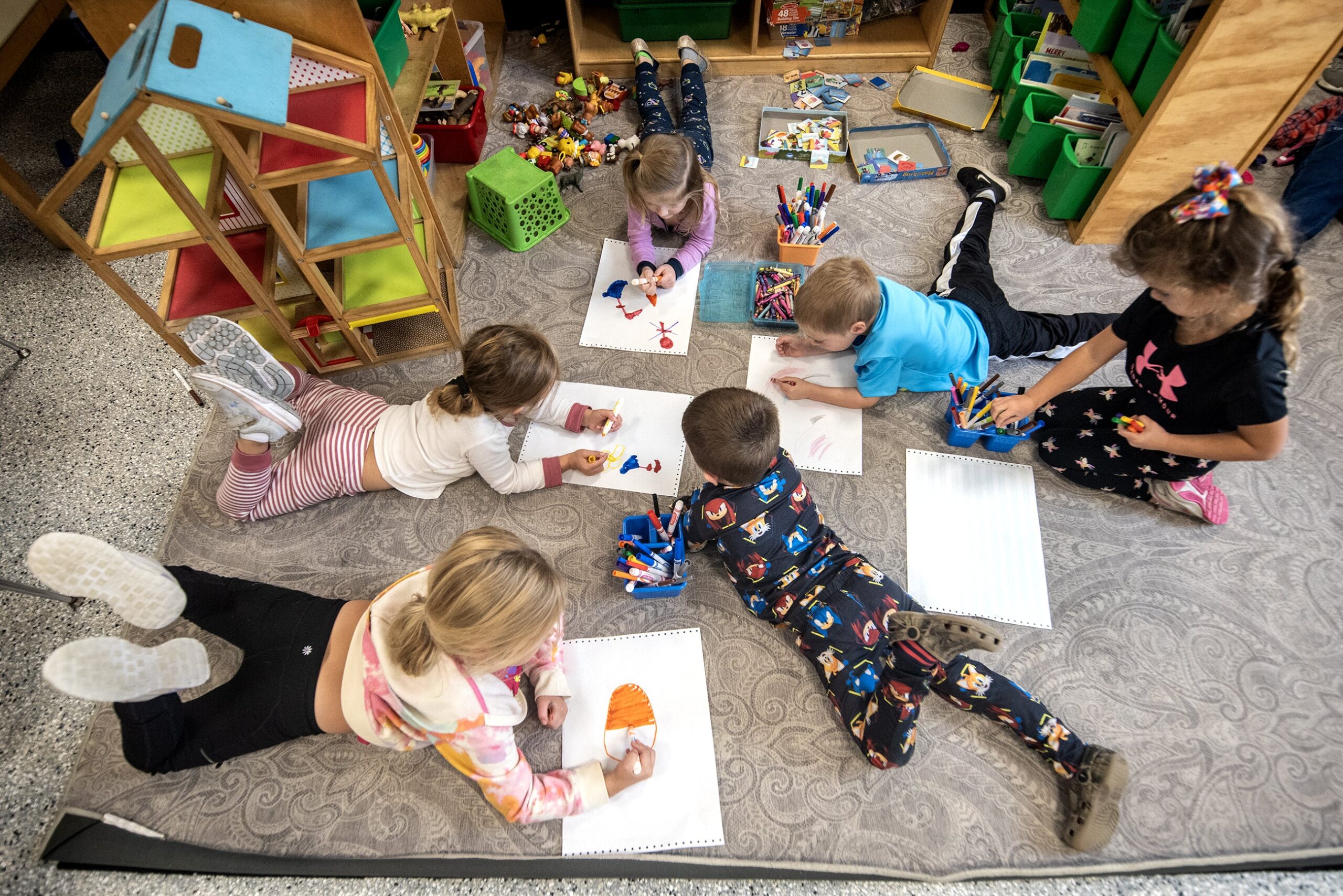Republicans on the Legislature’s budget committee voted early Friday morning to defund Child Care Counts, Wisconsin’s pandemic-era child care subsidy program.
The vote took place around 2:30 a.m., following a day filled with closed door discussions among GOP lawmakers and many hours after Democrats on the panel called for the program to be made permanent.
Child Care Counts distributed hundreds of millions of dollars in federal support to child care providers across the state during the COVID-19 pandemic. The money helped subsidize provider wages and maintain costs for parents.
Stay informed on the latest news
Sign up for WPR’s email newsletter.
In his budget, Gov. Tony Evers proposed spending $340 million to make Child Care Counts permanent. Ahead of a vote on the funding, Democratic lawmakers echoed that call.
The federal dollars are due to shrink significantly this month, and will expire entirely by February of next year. Advocates for the program say centers will lose staff and be forced to close immediately without the full funding.
“I don’t know how to convince you that this is the most important vote you’re gonna take,” said Sen. Kelda Roys, D-Madison, arguing the move would leave day care providers and parents without options.
Roys noted Republicans were defunding the program at a time when the state government’s general fund has a record surplus of nearly $7 billion.
“What are we going to do with that money that’s more valuable than setting young Wisconsinites — our baby badgers — up for success for the rest of their lives?” she said.
Republicans on the panel did not address the removal of Child Care Counts funding during debate on the plan.
Rep. Jessie Rodriguez, R-Oak Creek, said that Republicans are working on additional legislation to help people open more child care centers. GOP lawmakers also voted to set aside $15 million that could be used to create a revolving loan fund for child care providers. They also included $5 million for Boys and Girls Clubs and money to increase foster care rates by 5 percent.
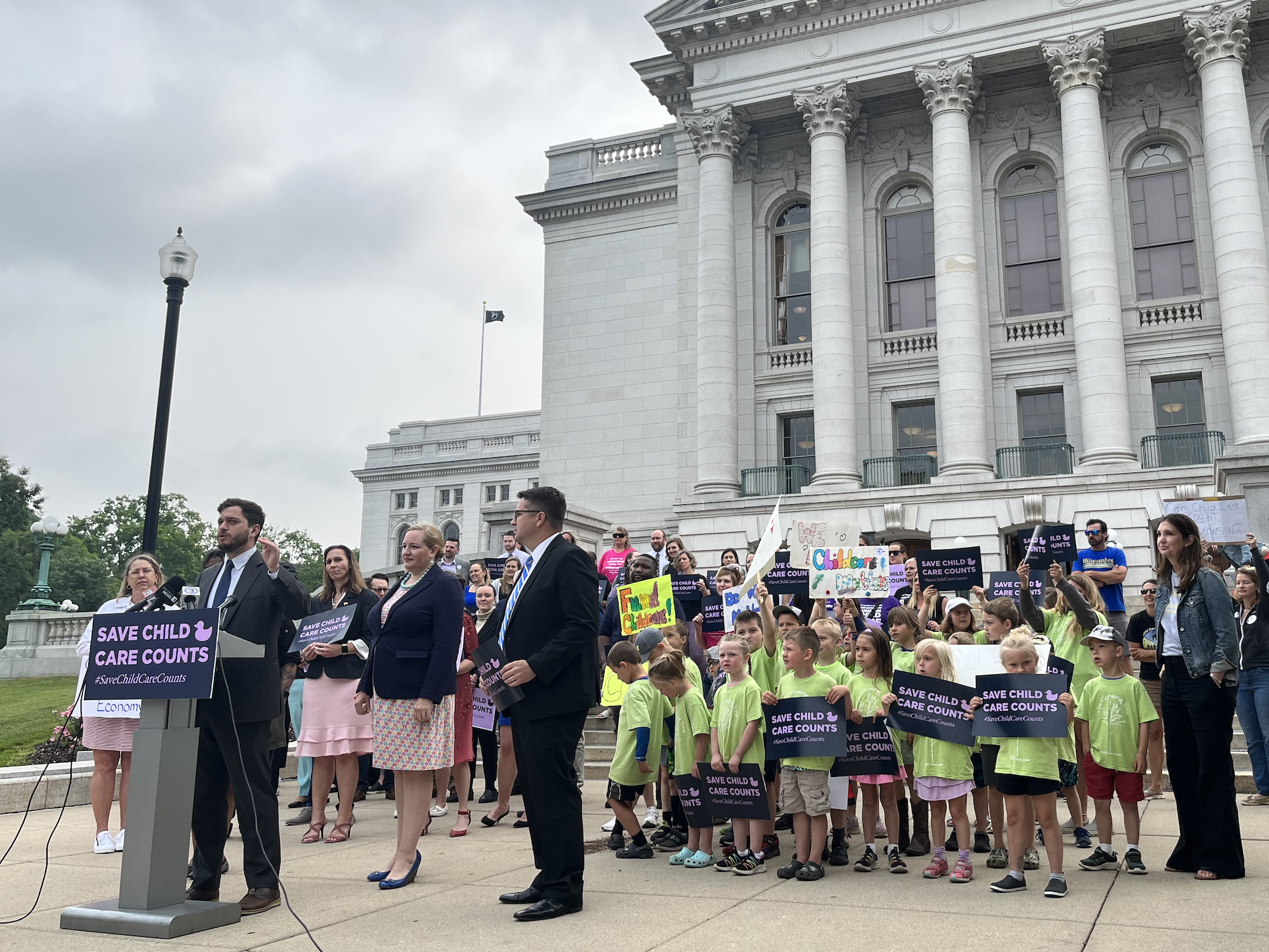
Hours before the committee met on Thursday morning, Democrats and child care funding advocates held a press conference outside the state Capitol urging Republicans to fund the full amount requested by Evers.
“Child Care Counts is the only thing that has really kept our doors open during this time,” said Brooke Skidmore, who operates The Growing Tree child care center in New Glarus. “And it’s frustrating because we have waitlists a mile long. But I have rooms that sit empty because I can’t get the teachers and I can’t get the teachers because of the pay.”
Tim Ballard, a working parent from New Glarus, sends his daughter to Growing Tree.
“(In) our family, we have two working parents. If this program goes away, and we lose access to child care, that means one of us putting our career on hold, maybe permanently,” Ballard told Wisconsin Public Radio. “And then for our daughter, it means losing access to her peer group, and, of course, losing access to a group of really skilled and dedicated care providers that have known her almost since she was born.”
According to an October 2022 survey by the National Association for the Education of Young Children, more than a quarter of child care providers said they would have shut their doors without the Child Care Counts programs.According to the Wisconsin Department of Children and Families, almost two-thirds of child care providers say they will need to raise tuition without the program.
“There’s something wrong when we are reluctant to fund something that would help an entire state remain employed, that would help qualified centers keep their doors open,” said Sen. LaTonya Johnson, D-Milwaukee, a former child care provider.
Even with the program intact, Wisconsin has faced a child care crisis for years. According to the Wisconsin Early Childhood Association, more than 70 percent of rural Wisconsin can be described as a child care desert, with one licensed childcare slot available for every three or more children in need.
The national Economic Policy Institute ranks Wisconsin 20th in the nation for most expensive infant care, finding that the average Wisconsin family with two children would have to spend about a third of their annual income on child care.
On Thursday afternoon, Gov. Tony Evers released a statement urging lawmakers to maintain the program.
“Given our state’s workforce challenges and our already historically low unemployment, Wisconsin literally cannot afford not to support our child care industry and make sure child care is affordable and accessible for families across our state,” Evers said.
Prior to the vote on Child Care Counts funding, GOP lawmakers rejected a proposal by Democrats that would have expanded Medicaid benefits for low-income mothers from 60 days after birth to a full year postpartum.
Currently, a bipartisan bill to expand that coverage is supported by a range of lawmakers, including both Republicans and Democrats who sit on the budget committee. Gov. Evers also proposed the expansion as part of his budget.
Assembly Speaker Robin Vos said this week that he does not support such a proposal.
In a separate vote, Republicans added a provision to their budget that would prohibit using Medicaid payments for gender confirmation procedures or puberty blockers. States around the country with Republican governors have passed similar laws, but the measure is likely headed for a veto by Evers.
In addition on Thursday night and Friday morning, GOP lawmakers:
- Voted on how to distribute $8 million in opioid settlement funding from pharmaceutical companies, including by spending about $3 million to distribute Narcan, which is used to reverse opioid overdoses, and test kits. The GOP plan also budgeted $2.5 million for residential treatment facilities and $2 million for medication assisted treatment programs.
- Approved a total increase in Medicaid spending of roughly $3 billion, including more than $830 million in state funds.
- Set aside more than $68 million for hospital services, $132 million for primary care providers, more than $15 million for emergency room care, nearly $12 million for rural critical care access and about $31 million for behavioral health services. That vote came weeks after more than 100 hospitals signed onto a letter asking lawmakers to increase Medicaid reimbursements to the tune of $185 million annually, to cover costs.
- Signed off on $5 million to establish a dentistry residency at the Marquette Dental School and $2 million to pilot a telehealth crisis response pilot program.
Wisconsin Public Radio, © Copyright 2025, Board of Regents of the University of Wisconsin System and Wisconsin Educational Communications Board.
